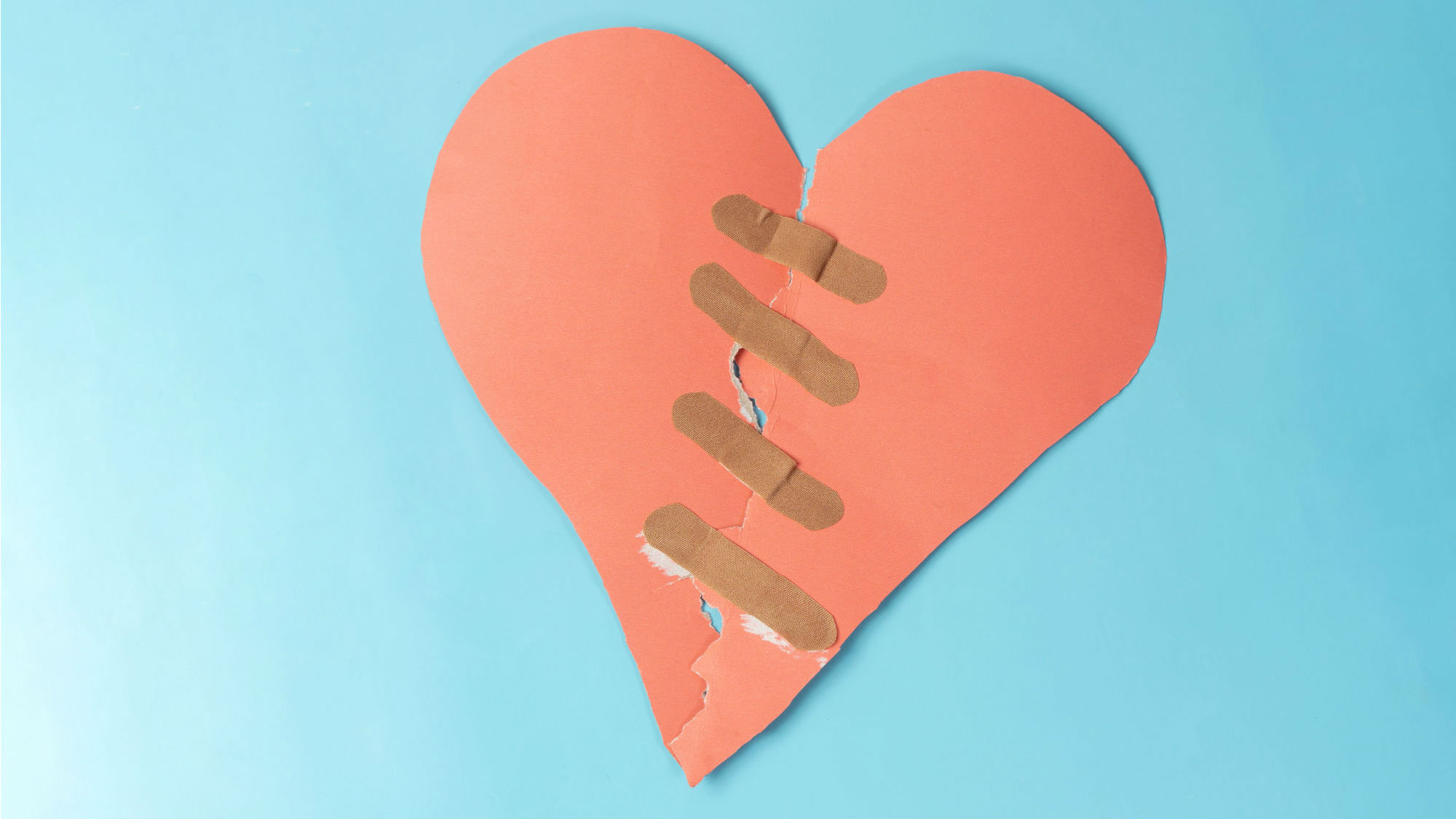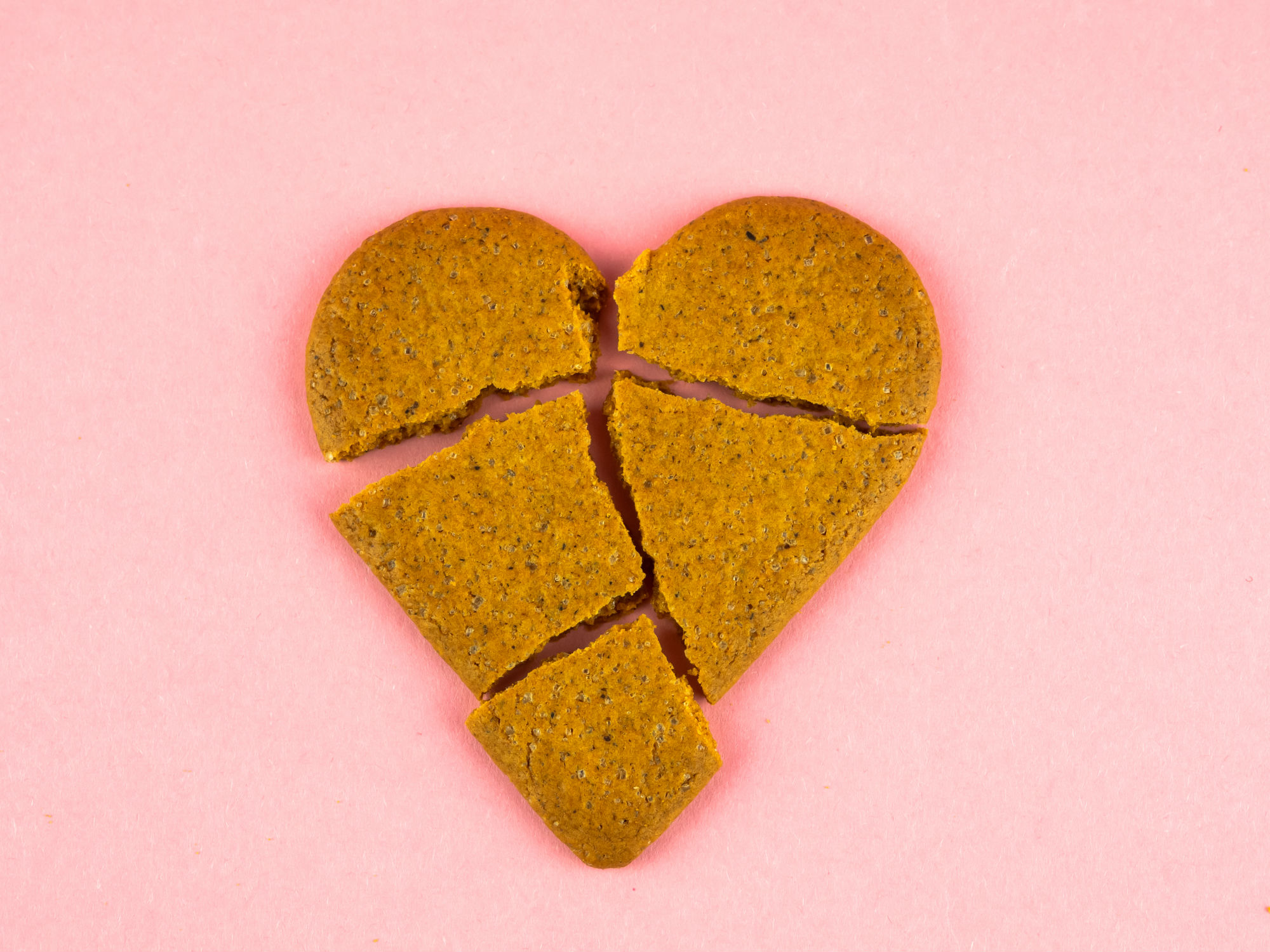These are the ways heartbreak physically impacts the body
What does a broken heart do to your health? We asked an expert...

What does a broken heart do to your health? We asked an expert...
Unsurprisingly, heartbreak hurts. We all understand a broken heart to be an intense, emotional experience - but physically impacting the body too? Not so much.
Turns out, emotional pain can negatively affect physical health. And while the Covid-19 pandemic has brought many couples closer together, it has also caused great strain, and sparked a relationship breakdown.
With this in mind, we tapped up health and fitness brand ShoeHero's health practitioner and PT Jason Briggs to explain the ways a broken heart physically impacts the body - with all the science to back it up. In particular, Jason discusses the 'break up diet,' what happens to the body when you miss someone and tips on how to minimise the health implications of a breakup - even when you are the one who instigated it...
1. The Break-up Diet
Studies show that women lose an average of 5lbs within the first month post break-up. This number falls to 3lbs if they instigated the break-up. It is no secret that our emotional wellbeing can directly impact our nutritional intake. Whether you refer to the phenomenon as ‘the heartbreak diet’ or ‘emotional eating,’ much of the UK population has experienced altering their diet because of emotional distress.
‘When we experience emotional strain, the body releases the stress hormone cortisol’, Jason starts. 'Our heart rate increases and there is a surge in adrenaline. Put simply, your body literally enters the fight or flight mode and regards food as a secondary concern, favouring instead to poise for attack. Evidence of this is the pupils dilating and your muscles becoming tense. Your body even reduces the speed at which it digests food’. Wow.
According to Briggs, it is not just the body’s physical changes that impact our appetite though times of stress. ‘Putting the body’s physical response to heartbreak aside, it is also our emotional response that influences our approach to food intake. The parts of the brain that take charge of emotional and physically pain sit closely together with the parts that dictate how we eat our food and its taste. As a result, this can lead us to believe that we no longer like the taste of even our favourite foods.’
Celebrity news, beauty, fashion advice, and fascinating features, delivered straight to your inbox!
He goes on to say, ‘Oxytocin is a hormone that is produced through the hypothalamus and secreted through the pituitary gland. It holds anti-anxiety properties as it promotes feelings of love, wellbeing, and security.
'When we fall in love, the body receives a surge in oxytocin leading us to feel secure, hence why we tend to eat more. When we experience heartbreak, it has the opposite effect and makes us feel insecure and unable to eat. The hormone also strengthens our emotional memory, hence why we replay emotionally distressing events in our head.’
‘When you experience heartbreak, it is vital that you fuel the body with nutritious foods that will promote your wellbeing. Eggs, nuts, salmon, and cheese are foods that boost serotonin levels. Serotonin is a feel-good hormone that can aid in comforting the body.
'Any exercise is also a good shout’, states Briggs. ‘By any exercise, I really mean any exercise. I don’t expect anyone who is experiencing stress to run a marathon or partake in a strenuous HIIT session however, a walk outside, Yoga or Pilates can really serve to be transformative practices.’ Noted.

Heartbreak really does hurt
'It really hurts’, is a remark that is synonymous with heartbreak, so much so it can almost be considered cliché. However, according to Briggs, it is fact. ‘Ultimately, when heartbroken, your brain tells your body that it is in physical pain. The part of the brain that ignites when you experience physical pain is the same part that activates when you feel emotionally disregarded.’
‘As your body encounters a flood of cortisol, blood is pumped to the muscles causing them to tense up and ready themselves for physical activity. However, as you are unlikely to be jumping into a workout routine, the muscles swell and begin to ache. Exercise can relieve the muscles of tension, so it is a great option if you are feeling physical upset as the result of a relationship breakdown. Alternatively, a massage, meditation or mindfulness can all work to ease tired muscles.’
Your first brain is the gut
‘Gut feeling’, refers to your immediate emotional reaction to a specific situation without considering logic or overthinking. It has long been thought that the occurrence of a gut feeling is a myth that aligns with spiritual intuition. However, according to Briggs gut feeling is scientifically proven and its occurrence is often directly linked to a relationship breakdown.
‘According to Florida State University, gut to brain signals powerfully manipulate how we feel and our overall mood. Signals are sent via the Vegus nerve from the gut to the brain. The Vegus nerve sends more signals than any other system within the body.
The bottom up messages that are sent through the nerve is what we often refer to as a ‘gut feeling’ and encourage us to define how we feel about a certain situation. The signals work to encourage us to make decisions that deter us from upset or danger. Further research has shown that signals from our gastrointestinal tract can serve as a red flag in situations and prevent us from making mistakes’.
‘Gut feeling is often a physical response to real life events. They can be felt hence why people often make statements such as, ‘I have butterflies’, or ‘I feel nervous’. ‘Your gut feeling can go into overdrive after a breakup. Especially if you are replaying events to work out what went wrong. Meditation can be a great tool to calm the mind and aids in relaxing the nervous system’.
The science behind missing someone
After a relationship breaks down, it is likely that you will miss your ex – even if you instigated the break-up. Yes, really. ‘By now, we understand the body sees a surge in dopamine, oxytocin and serotonin when we experience love. If the person who instigated the release of the hormones is no longer around, the body will pursue them to once again experience pleasure. A study published in the journal of sexual medicine discovered that falling in love activates the same part of the brain as cocaine. Consequently, not only can you crave the person you fall in love with, you can also yearn for them.
‘It is common practice that a couple form habits and traditions throughout their relationship’, says Briggs. ‘Whether it is watching your favourite Netflix series, eating at your favourite restaurant or going to the pub. When a relationship has ended it can throw your routines out of whack. It may lead to you feeling lost or at a loose end. Inevitably, there are things in a relationship that you simply do not have time to do, whether it is self-care, meeting friends, going to the gym, or visiting family.
'It can be hard to be motivated when heartbreak is involved but make a list of all the things that you wish to do that will have a positive impact on your wellbeing. Throughout the week, slowly tick them off and gradually you will begin to enjoy additional time.’
Olivia – who rebranded as Liv a few years ago – is a freelance digital writer at Marie Claire UK. She recently swapped guaranteed sunshine and a tax-free salary in Dubai for London’s constant cloud and overpriced public transport. During her time in the Middle East, Olivia worked for international titles including Cosmopolitan, HELLO! and Grazia. She transitioned from celebrity weekly magazine new! in London, where she worked as the publication’s Fitness & Food editor. Unsurprisingly, she likes fitness and food, and also enjoys hoarding beauty products and recycling.